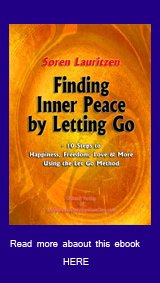Poly Relationships
Polyamory is a loaded word – to some people it means freedom, and to others it means taboo.
In most countries around the world today, we live in societies dominated by the ideal of monogamy and the institution of marriage. This is particularly true in countries which have had a heavily Christian, Jewish or Islamic influence over many years. Over time, monogamy has developed into the norm – to the point where most people don't even question it as a way of life anymore.
But times are changing. Alternatives to monogamy are becoming more widely practiced and accepted by the day, as more and more people shake off the limitations of outdated ways of living to express their true selves more freely.
What is Polyamory?
'Poly' means many, '-amory' means love. So, quite simply, polyamory means loving multiple people at the same time.
This is not the same as 'cheating' or 'sleeping around' – far from it. Poly is all about openness and honesty. It's about maintaining multiple loving relationships at the same time while everyone involved knows about and is fine with the whole situation. It's not about 'sneaking around' or having a secret lover or mistress.
The Stigma Around Polyamory
As you've probably figured out by now if you've tried to talk to friends about polyamory, most people don't find the idea very acceptable. In fact, it's something of a taboo in most places. Not that people don't like the idea – many people would like to have multiple partners without feeling as if they're doing something wrong. But there's a kind of 'social guilt' surrounding the whole thing – people have it drummed into them all their lives that they should 'grow up, get married and have kids' – and anything else is a 'sin.' Whether that word gets used or not, that's what gets implied.
Again, this comes back to religious ideals that are still lingering, even after churches have lost much of their power and control. Even atheists don't realize that many of their beliefs about relationships are actually dictated from the outside – by movies and the media on one hand, and by the religious ideals that live on in our laws on the other. The laws surrounding marriage may have changed somewhat over the years, but the fact that we still arrange our relationships around marriage is rarely ever questioned. Few people stop to say, 'Hey, is this marriage stuff really such a good idea?'
Why not? Because it's 'just one of those things people do.' Most people don't like to be trailblazers – they don't want to go against the norm. So they do what they believe they're supposed to do, whether it feels right for them or not.
Is It Natural?
Many people object to poly living on the grounds that is 'unnatural.' Nothing could be further from the truth. In fact, if anything, the notion that humans ought to have a single pair-bond for life is quite unnatural. It's only cultural pressure to conform that makes the majority of people view monogamy as being the 'natural' form of relationship.
Why do we say poly is really quite natural? Well, consider our closest genetic relatives: the apes. Monogamy is actually very rare in nature, and there are no apes that mate for life with a single partner. Mating for life is actually a trait which is typically seen in various species of birds, hence the term 'lovebirds.' But more recent research indicates many birds may not be as faithful as once thought, either, taking random opportunities throughout their lifetimes to mate with strangers, even while part of a monogamous pair bond.
Unfortunately, the idea of a lifetime marriage appears to run contrary to human genetics – and the behavior of most mammals, for that matter. Chimpanzees are very polygamous (they mate with multiple partners without forming strong pair bonds). Gorillas are polyamorous (they tend to form pair bonds with more than one other gorilla – usually one gorilla, the alpha, will mate with multiple females).
Now why would be assume humans are any different? Although it might be hard for some people to accept, having multiple partners is actually quite natural for humans when you look at the context of biology and evolution. So if you've always tended to feel there was something wrong with the idea of marriage and monogamy, don't feel strange – it's simply your biology sending you signals.
Polyfidelity
Polyfidelity is a term you'll often hear used in place of polyamory, but they don't mean exactly the same thing. Polyfidelity is simply a way of structuring poly relationships. Polyfidelity is where all the partners in a relationship are involved with each other in an equal way – this is sometimes referred to as a 'circle.'
The other important part of polyfidelity is that members of the circle don't have sexual contact with people outside the circle. This is where the 'fidelity' comes in – there is a level of commitment, but rather than being to one person, it's a commitment to everyone else in the group. Another word for polyfidelity is polyexclusivity, because even though it contains more than two people it's an exclusive relationship.
Polyamorous Relationships
While polyamorous relationships can allow you to achieve a much higher level of happiness and emotional and sexual satisfaction, they do come with problems. Even with monogamous relationships, most people still struggle on a daily basis – there's no rulebook for how to deal with relationship problems. Many of those problems simply become more magnified when you have more than two people in the equation. The notion that poly relationships are for people who 'can't handle commitment' is simply wrong – it actually requires a lot of strength of character and trust in your own sense of values in order to make polyamorous relationships work.
For example, the issue of jealousy still often pops up in polyamorous relationships. Even when people have made a mental commitment to the principle of openly loving multiple people, there are often still underlying emotional scars that affect how people feel and behave.
Pros and Cons of Poly Relationships
While polyamory is not exactly something you decide to do after a 'cost-benefit analysis,' it is worth thinking about the implications before you decide to give it a go.
There are some big drawbacks. For example, social exclusion and the judgment of others. People who you once considered friends may start to see you differently. If you're concerned about your social status and how others view you, or you need to maintain a 'wholesome' public or professional image because of your career, you need to consider this in advance. If you're comfortable in your own skin and you couldn't care less what people think of you, this won't be an issue.
Indeed, polyamorous relationships can take a lot of effort to maintain. This is not simply a 'casual sex' arrangement with multiple people. You're actually engaging in a fully developed, loving relationship with more than one person at the same time – that can be very rewarding, but also requires a significant input of time and effort.
Of course, the upsides of a successful poly relationship are also massive. For one thing, it helps eliminate the 'grass is always greener' problem that occurs in many monogamous relationships, where one or both partners ultimately resents the other because they feel like their ability to love and experience other people is limited by the confines of the monogamous relationship. In that sense, polyamorous relationships relieve a lot of the guilt and frustration that often builds up in a marriage or other monogamous relationship. You aren't forced to feel guilty for having entirely natural desires – in fact, you can act on those desires without feeling guilty.
Polyamorous Societies
Polyamory has been practiced in many societies throughout history and is still practiced in some countries around the world. Often it takes the form of one man having multiple wives, although this is not always the case – sometimes a woman has multiple husbands. One notable example of polyamory in society is in Utah, where Mormon men take multiple wives. Polyamorous societies are also found throughout Africa – polyamory is normal in many parts of countries like Kenya and Sudan. In most cases, these polyamorous relationships revolve around a single man with multiple wives. Often there are practical reasons for these relationships, such as a lack of men in the population resulting from war, but in many cases it's also a practice which in ingrained in the local culture and has been for many years.
Of course, poly doesn't have to be tied to the legal institution of marriage – in fact, many people who practice poly lifestyles reject the idea of marriage altogether, seeing it as outdated, unnecessary and unhealthy for humans, who naturally tend to love more than one person at a time.
The Personal Development Guy's Self Improvement Ezine (FREE)
Would you like to keep in touch - and get high-level tips and special bonuses? Then please sign up for my self improvement newsletter The Personal Development Guy's Self Improvement Ezine. It is totally FREE.
I LOVE Your Support
If you've found the free personal development content on this website useful, please click the Donate button. Your donation will help me to keep producing free, high-level self improvement information. I am VERY GRATEFUL for your support!
Inspirational Quotes, Poems and Funny Short Stuff
If you want, you can also get your personal development, spirituality and general wisdom in an ultra light version - or even add your own wisdom to the site. Just go to the other sister of this website at:
- World's Best and YOUR Best Quotes, Poems and Short Funny Stuff
Quotescoop.com is also known as:
(http://www.inspirational-quotes-short-funny-stuff.com).
High-Level Positive Parenting Advice and Deep Insights
Positive Parenting Ally is the parenting equivalent of the Personal Development Guy. This is where you go if you want really deepen your understanding of parenting, empower your kids and make everyday life more easy and joyful.
Positive-Parenting-Ally.com
- Parenting advice for the conscious, open-minded parent!
Back to the top of this page about Poly Relationships
Visit the main page about Relationships
Where Would You Like to Go Next?
To see what has been added to this site recently (plus offers, etc.), check out Blog & News at thePersonalDevelopmentGuy.comTo share your own short self improvement ideas, tips, musings, quotes, stories, spiritual jokes, etc. (and read the short ideas, etc. others have shared) jump to Shared Blog: Self Improvement Ideas
Jump to the Personal Development Guy Homepage







